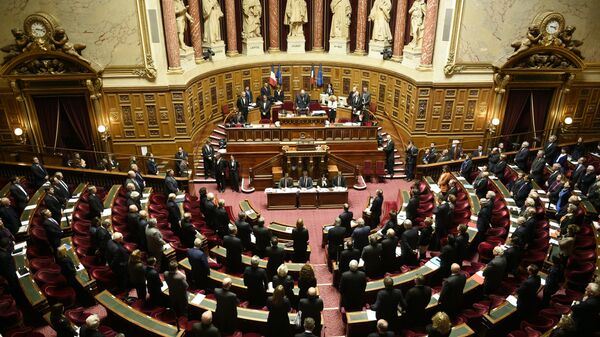Having won the support of the lower house, where he has a majority, Hollande was set for a battle with the Senate and invoked 49.3 to the anger of many unions, who immediately began a series of rolling strikes which have affected fuel refineries, depots, trains, the Paris Metro, garbage collection and many other public services, threatening to mar the Euro 2016 tournament, which France is currently hosting.
Now the Senate is set to debate the provisions of the labor reforms — challenging the proposed working time provisions — and put it to a vote, causing another constitutional crisis. The move comes ahead of what the powerful CGT union is calling a "huge" strike on Tuesday (June 14).
#France Piles of uncollected household rubbish accumulating in parts of #Paris @AFPphoto pic.twitter.com/XJvg4X4S1B
— Aurelia BAILLY (@AureliaBAILLY) 10 June 2016
France has been beset by daily strike action for over three weeks over controversial reforms to the highly codified French labor laws — known as the Code du travail — in order to give employers more flexibility. The labor reforms were largely directed at making companies take on more workers on permanent contracts, rather than temporary ones, to bring down the unemployment rate from ten percent. The proposals would give employers more scope to lay-off workers and cut costs and allow some employees to work far longer than the current 35-hour week.
French Labor Code
It was following the 1968 riots that the Code du Travail was changed to bring the maximum working week to 44 hours. It has since been reduced, over time, to 35, which the unions want to maintain, but which Hollande believes is holding back productivity because of the lack of flexibility it leaves employers.
Other reforms include a cap on severance pay for workers dismissed by a company. The current uncertain cost of laying-off workers mean that companies are risk-averse to doing so, leaving them less flexible and — in some cases — less productive. The government has now relented on that point, making the proposed cap non-binding.
If the French could not cancel any more of my travel arrangements that would be really appreciated. 2/3 so far. #Airfrance #SNCF
— Jonny (@Jonnyh85) 13 June 2016
Since bypassing parliament to impose the changes, Hollande has faced a torrent of protest, with strikers blockading fuel refineries and depots, leading to road transport delays, as well as rolling strikes on the French rail and Metro networks, Air France (where there is a dispute over reorganization) as well as some ports.




